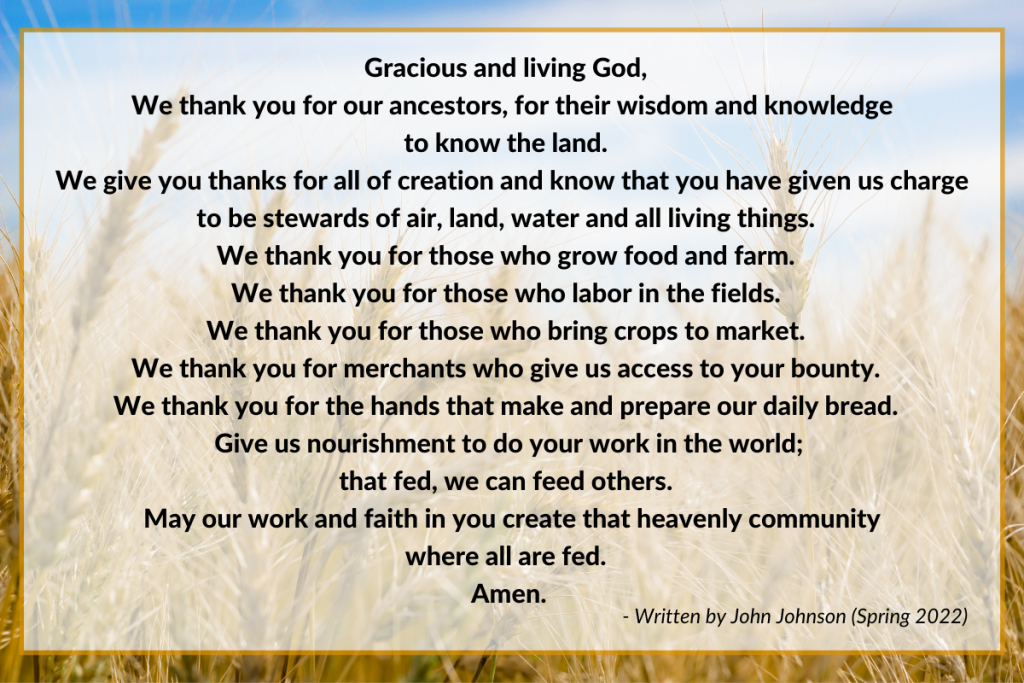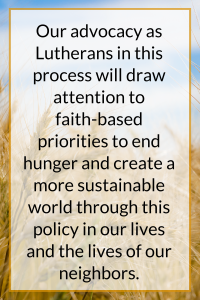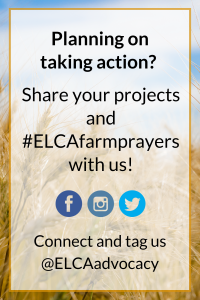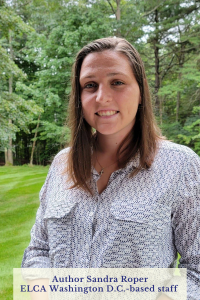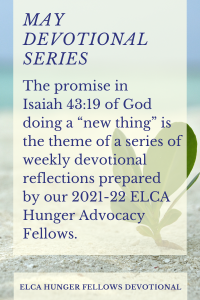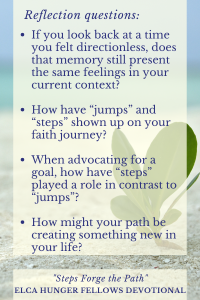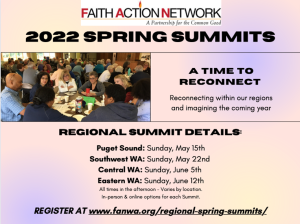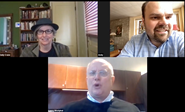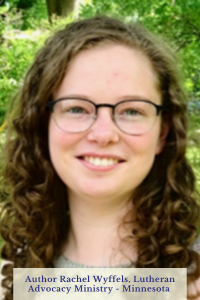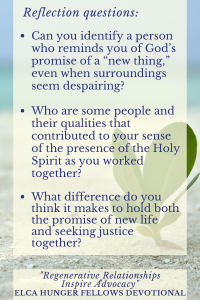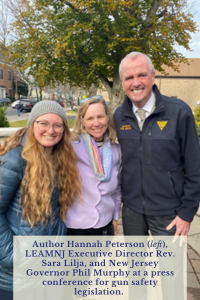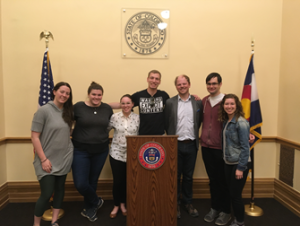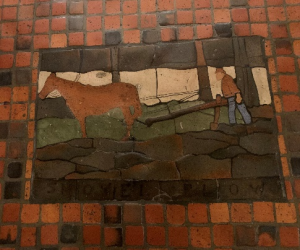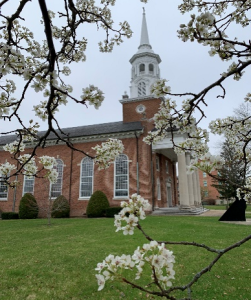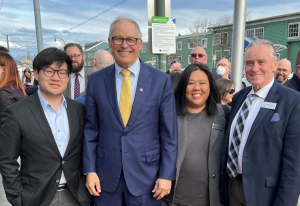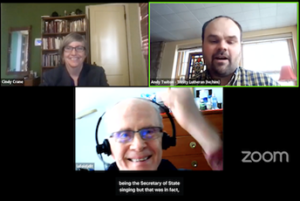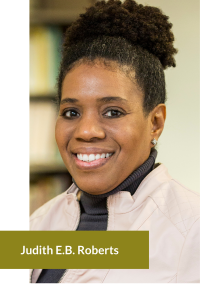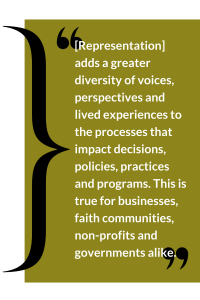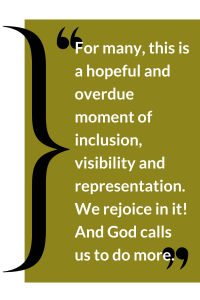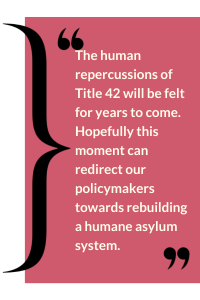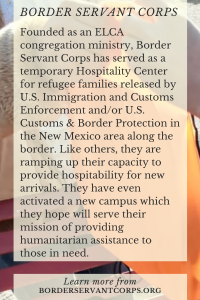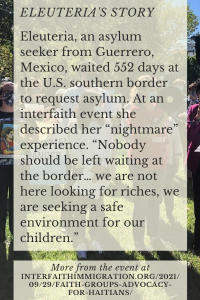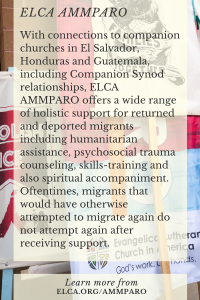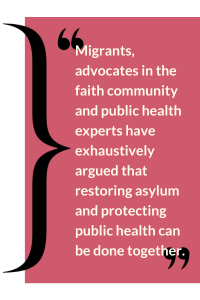from the ELCA advocacy office in Washington, D.C.
– The Rev. Amy E. Reumann, Senior Director, ELCA Witness in Society
Partial expanded content from Advocacy Connections: May/June 2022
HOUSING FIRST SIGN-ON OPPORTUNITY | OP-ED ON CRIMINAL JUSTICE REFORM | INTERNATIONAL POLICY DEVELOPMENTS | FEDERAL INDIAN BOARDING SCHOOL REPORT | UKRAINE AND AFGHAN MIGRANT UPDATES | BUFFALO MASS SHOOTING
The May/June issue of ELCA Advocacy Connections was prepared for distribution on May 25, 2022. While these brief updates on activity in which our ELCA Witness in Society federal staff is engaged are never an expansion of national news or a complete picture, today especially we are aware they don’t touch our corporate reflections, including on the horror of the shooting in Uvalde, Tex. and on observance of the second anniversary of the death of George Floyd. In our advocacy we continue to seek meaningful opportunities to support policies that increase gun safety. Federally at this moment, we anticipate an Executive Order today from President Biden to increase accountability and transparency in policing. The ELCA introduced in 2019 a 60-Day Journey Toward Justice in a Culture of Gun Violence which provides some resources for our prayer and action. In our work and ministry, and our individual discipled lives, may we turn to our Lord for comfort, guidance and strength, and steadfastly do all we can personally and publicly.
 HOUSING FIRST SIGN-ON OPPORTUNITY: Congregations and other ministries are invited to add their names by May 30 to a letter to Congress in support of the Housing First model. The letter (read in full) was organized with the National Low Income Housing Coalition (in which the ELCA is a member), and the ELCA has joined the interfaith and religious service provider letter to Congress in support of the Housing First model and opposition to policy changes that would undermine its use.
HOUSING FIRST SIGN-ON OPPORTUNITY: Congregations and other ministries are invited to add their names by May 30 to a letter to Congress in support of the Housing First model. The letter (read in full) was organized with the National Low Income Housing Coalition (in which the ELCA is a member), and the ELCA has joined the interfaith and religious service provider letter to Congress in support of the Housing First model and opposition to policy changes that would undermine its use.
Despite a lack of investment in housing resources in recent years, the innovative uses of Housing First as an approach to homelessness have demonstrated a high statistical success rate nationally. The letter to lawmakers comes as rates of homelessness have remained nearly level – even as staggering housing costs, the pandemic, and other factors would otherwise suggest a large surge in displacement.
If your ministry or congregation wants to sign before the May 30 deadline, the signature form for the letter is found at https://forms.office.com/r/Nx8VFqk8Hb
 OP-ED ON CRIMINAL JUSTICE REFORM: Working together, Deacon Nick Bates of Hunger Ohio and ELCA federal advocacy staff crafted and pitched a piece to a Cleveland news source reflecting on policy before Congress and compassionate criminal justice. Each of us reading ELCA Advocacy Connections can make our voices heard, together representing a strong network of prayerful, concerned citizens living out our baptism in discipled lives.
OP-ED ON CRIMINAL JUSTICE REFORM: Working together, Deacon Nick Bates of Hunger Ohio and ELCA federal advocacy staff crafted and pitched a piece to a Cleveland news source reflecting on policy before Congress and compassionate criminal justice. Each of us reading ELCA Advocacy Connections can make our voices heard, together representing a strong network of prayerful, concerned citizens living out our baptism in discipled lives.
“As a Christian, I know that justice means recognizing the human capacity for growth and redemption. And as a leader in the [ELCA], I believe that human dignity is God’s gift to every person. That’s why I urge U.S. Sens. Rob Portman and Sherrod Brown to support the package of sentencing reform bills currently pending in Congress,” Deacon Bates wrote. Find locations in the ELCA-affiliated state public policy office network here. Read his full opinion piece, “As a Christian, I believe in compassionate criminal justice. Ohio’s senators should, too,” from Cleveland.com. Interested in writing your own on a policy issue that concerns you in which you have experience? Use the resource “Writing a Letter to the Editor” or the video “How Do I Use Media for Impact?” for pointers.
 INTERNATIONAL POLICY DEVELOPMENTS: The House of Representatives passed two bills that ELCA advocacy staff has been working on: the Global Malnutrition Prevention Act and the Burma Act of 2021. Thank you for your Lutheran voices of support. Advocacy attention now shifts to the Senate side to push for passage there.
INTERNATIONAL POLICY DEVELOPMENTS: The House of Representatives passed two bills that ELCA advocacy staff has been working on: the Global Malnutrition Prevention Act and the Burma Act of 2021. Thank you for your Lutheran voices of support. Advocacy attention now shifts to the Senate side to push for passage there.
In Yemen, the Saudi-led coalition and Iran-backed Houthi rebels agreed to a two-month truce, agreeing to halt all military operations in Yemen and across its borders. Advocacy will continue in urging the U.S. government to stop supplying weapons, spare parts, maintenance services and logistical support to Saudi Arabia.
 FEDERAL INDIAN BOARDING SCHOOL REPORT: The Department of the Interior released an investigative report (5/11/22) laying the groundwork to address the trauma and legacy of federal Indian boarding school policies. The ELCA is committed to understanding the Church’s role and supporting healing for survivors, and an advocacy opportunity will soon be posted in our Action Center.
FEDERAL INDIAN BOARDING SCHOOL REPORT: The Department of the Interior released an investigative report (5/11/22) laying the groundwork to address the trauma and legacy of federal Indian boarding school policies. The ELCA is committed to understanding the Church’s role and supporting healing for survivors, and an advocacy opportunity will soon be posted in our Action Center.
The experience of the ELCA, and of members and siblings among Indigenous people of North America, is not separate from this federal study. For example, in the ELCA Saint Paul Area Synod, the Advocates for Racial Equity (ARE) group held discussions about the Saint Paul Industrial School which operated at one time as an Indian Boarding School in Clontarf, Minn. Their March 24 dialogue was a chance to look closer into what led this small town to build and operate such a program and examine the ongoing impact of Indian Boarding Schools, including “ways in which suppression keeps us from rumbling with our past.”
 UKRAINE AND AFGHAN MIGRANT UPDATES: The President shared his $33 billion request for more security and economic assistance for Ukraine, including the “Uniting for Ukraine” initiative. Notably, the request also includes an Afghan Adjustment Act. Attention now turns to Congress for passage.
UKRAINE AND AFGHAN MIGRANT UPDATES: The President shared his $33 billion request for more security and economic assistance for Ukraine, including the “Uniting for Ukraine” initiative. Notably, the request also includes an Afghan Adjustment Act. Attention now turns to Congress for passage.
As of April, there were over 7.7 million displaced people in Ukraine. The “Uniting for Ukraine” initiative seeks to streamline the process for Ukrainians abroad to come to the United States via a specialized parole program that lasts up to two years (more information on the Department of Homeland Security website). Ukrainians should seek information first before making travel arrangements.
Additionally, the next few weeks are especially critical for advocates to make their voices heard to pass an Afghan Adjustment Act. Use the ELCA Action Center to add your voice through a customizable Action Alert.
Of additional migration impact, a federal judge has granted a preliminary injunction to block the Biden administration from ending the mass expulsions of migrants under the Title 42 pandemic-era rule. “Migrants, advocates in the faith community and public health experts have exhaustively argued that restoring asylum and protecting public health can be done together,” writes Giovana Oaxaca, ELCA program director for migration in an ELCA Advocacy Blog post on Title 42. Our advocacy continues to pursue fair safe, and humane asylum policy in the United States.
 BUFFALO MASS SHOOTING: Advocacy continues to be part of our response to grief and anger again unveiled after the killing of 10 people in a racially motivated mass shooting at a Buffalo grocery store on May 14. As legislative responses surface in Congress, ELCA staff will make available outlets for our voices in the process.
BUFFALO MASS SHOOTING: Advocacy continues to be part of our response to grief and anger again unveiled after the killing of 10 people in a racially motivated mass shooting at a Buffalo grocery store on May 14. As legislative responses surface in Congress, ELCA staff will make available outlets for our voices in the process.
“Churches have a foundational role in eradicating racism and white supremacy in society. We must take real and lasting action now—through education, relationship-building with Historic Black Churches, ongoing anti-racism education, advocacy, and self-reflection,” wrote the Rev. Elizabeth A. Eaton, ELCA presiding bishop, in a statement (5/19/22).
The bishop of the ELCA Upstate New York Synod wrote, “Let us be of one mind. We in the Upstate New York Synod and in the Evangelical Lutheran Church in America reject racism and a white-supremacy worldview and mindset. We renounce the ways scripture has been used to support genocide, enslavement of people, oppression, and mass incarceration. We acknowledge, lament, and repent in the ways we have been complicit in a white dominate culture which supports competitive individualism, binary ways of problem solving, seeking comfort over reparations, and centering power within, thereby marginalizing the experience, voice, and thoughts of others.” Bishop Lee Miller II’s letter can be read in full here.
Receive monthly Advocacy Connections directly by becoming part of the ELCA Advocacy network – http://elca.org/advocacy/signup , and learn more from elca.org/advocacy .

